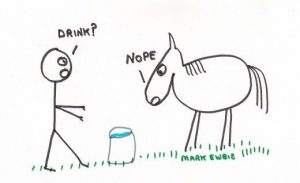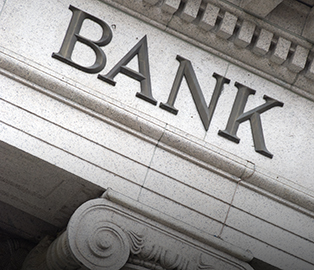What even is QE?

Quantitative easing is a word we seem to hear often these days, but what does it even mean... exactly. Many just chalk it up to "printer go brrr" and leave it at that. Mystery 'solved'. The actual truth of the matter is way too complex for people to be bothered with it, which is fine until we start making assumptions based on the 'fact' that we understand how it works when we really have no idea. That's when people start getting into trouble with the whole "printer go brrr" ideology.
Of course if the conclusion to, "Printer go brrr," happens to be, "Buy more Bitcoin," ah well then perhaps the correct conclusion was reached after all. The entire value proposition of Bitcoin is that its gross inefficiency will pay for itself magnitudes over simply because there are no other trustworthy options available. The biggest threat to fiat, is itself. If fiat is the Titanic, it is not threatened by the lifeboat that is Bitcoin, no matter what the powers that are claim.

Lifeboats can not be trusted!
Only pirates use lifeboats!
Hmmmm, okay boomer.
In any case, if we head on over to Investopedia they have a page that describes quantitative easing. Judging from skimming through yesterday it may be worth a looksee.
https://www.investopedia.com/terms/q/quantitative-easing.asp
You may be surprised to hear that QE only was first employed (in USA) during the housing crisis of 2008. It feels like it's been around forever but it is a relatively new development.
Quantitative easing in the U.S.
It officially kicked off in March 2009 and concluded a year later, with the U.S. central bank purchasing $1.25 trillion total in mortgage-backed securities, $200 billion in agency debt and $300 billion in long-term Treasury securities.
Wow...
$1.25 TRILLION in mortgage-backed securities? And we all know the collateral for those securities, as is self-defined, are the mortgages. House loans that people could not afford because of variable interest rates. One day the monthly payment on the house is $2000 a month, the next it's $4000 and they lose everything. So all that bad debt stacked on top of bad debt... the FED was buying it up to 'fix' the situation.
I'll be honest
When I watched the Big Short in 2015, I didn't understand quite a bit of it. That was long before I had any interest in finance or crypto. I should probably watch it again and actually pause it and look up some of the stuff they talk about. Would be worth another blog post for sure (a mega post no doubt).
Talk about derivatives.
Imagine taking a home loan and turning it into yet another asset that is bought and sold on the market. Who does that? These guys. Such a house of cards this finance game we play. In any case this actually has nothing to do with that investopidea article on QE so lets get to it shall we?

Quantitative easing (QE) is a form of monetary policy in which a central bank, like the U.S. Federal Reserve, purchases securities from the open market to reduce interest rates and increase the money supply.
But how is the money supply increased?
It is somewhat glossed over that banks are simply incentivized to give out more loans with their newfound liquidity. There is no guarantee that they'd actually do it. But of course we can't assume that we are getting the most thorough information from an Investopedia article. After all, the intended audience of a post like this is someone who might not know anything about the situation whatsoever. Once again that we see that every economic problem is so complicated that all explanations of the situation lead down a dozen rabbit holes, that in turn lead down a dozen other rabbit holes.

Quantitive easing is often implemented when interest rates hover near zero and economic growth is stalled. Central banks have limited tools, like interest rate reduction, to influence economic growth. Without the ability to lower rates further, central banks must strategically increase the supply of money.
Score one for crypto?
Central banks have limited tools
The really do...
Many people out there would love to blame the Federal Reserve for all of the economy's problems. But shockingly, almost all of the economy's problems are decentralized in nature.
Think about it:
Who is to blame for the 2008 housing crisis? Is it the realtors who essentially tricked millions of people into signing a loan that they couldn't afford? Is it the buyers who got tricked? (We certainly could blame the victim, even though it's not a fair thing to do.) Is it the banks for competing with each other in a completely unsustainable way. Is it the 'geniuses' that decided to turn debt itself into collateral? Is it the FED for swooping in and buying up all the bad debt like hotcakes, allowing everyone to get away with it?
What most fail to understand is that ironically a lot of these problems in society are not created by some centralized agent of chaos, but rather our combined collective greed on a global scale. These things are seemingly everyone's fault and no one's fault all at once, which is why it's so easy for people at the top to dance around these issues while never actually being held accountable for the unsustainable practice. "Everyone is doing it." It's like driving 10 MPH over the speed limit on the freeway. Everyone breaks the law, and everyone gets away with it.
Does Quantitative Easing (QE) Work?
Most economists believe that the Federal Reserve's quantitative easing program helped to rescue the U.S. and global economy following the 2007-2008 financial crisis, however, the results of QE are difficult to quantify.
Globally, central banks have attempted to deploy quantitative easing as a means of preventing recession and deflation in their countries with similarly inconclusive results. While QE policy is effective at lowering interest rates and boosting the stock market, its broader impact on the economy isn’t apparent.
Obviously this is a pretty refreshingly honest statement to make.
Does QE work?
Meh, who knows!
Maybe it works!?!
lol
Again, economies are shockingly complex and most people can't be bothered to figure out any of this stuff. Instead, we tend to oversimply these issues and just chalk it up to "printer go brrr" and whatnot.
Commonly, the effects of quantitative easing benefit borrowers over savers and investors over non-investors
Sounds about right.
As liquidity increases for banks, a central bank like the Fed
cannot force banks to increase lending activities nor can they force individuals and businesses to borrow and invest.This creates a “credit crunch,” where cash is held at banks or corporations hoard cash due to an uncertain business climate.
Oh look at that they said the thing!

To combat the Great Recession, the U.S. Federal Reserve ran a quantitative easing program from 2009-2014. The Federal Reserve's balance sheet increased with bonds, mortgages, and other assets. U.S. bank reserves grew to over $4 trillion by 2017 providing liquidity to lend those reserves and stimulate overall economic growth. However, banks held $2.7 trillion in excess reserves, an unexpected outcome of the Federal Reserve's QE program.
Wow, it's almost as if, instead of issuing more loans like the FED wants them to, the retail banking sector instead leverages QE as exit liquidity, allowing them to sell their risky securities during uncertain times and just sit on the reserves given to them by the FED. Statistical 'anomalies' like this speak volumes. Banks would rather sideline themselves and sit on their reserves even when those reserves are being devalued. Cash is king.
In 2020, the Fed announced its plan to purchase $700 billion in assets as an emergency QE measure following the economic and market turmoil spurred by the COVID-19 shutdown. However, in 2022, the Federal Reserve dramatically shifted its monetary policy to include significant interest rate hikes and a reduction in the Fed’s asset holdings to sidetrack the persistent trend of higher inflation that emerged in 2021.
So now we see the effects of the FED finally doing the opposite and unwinding their positions. As we can see, the economy is fiercely bucking under the pressure. Again, many would like to blame the FED for the current situation, when in reality it is the decentralized collective greed of humanity that sucks liquidity dry from every river of value that flows throughout the ecosystem. "If I don't act this way, someone else will."
Critics have argued that quantitative easing is effectively a form of money printing and point to examples in history where money printing has led to hyperinflation. However, proponents of quantitative easing claim that banks act as intermediaries rather than placing cash directly in the hands of individuals and businesses so quantitative easing carries less risk of producing runaway inflation.

As weird as it is to say, this seems to be the case.
QE can't lead to hyperinflation, because the banks aren't actually issuing more money out to the public. It's just a fun way for institutions to unload their securities without crashing the markets and taking a loss. Even if the banks were issuing more loans out to the public... that's literally exactly what the FED wanted in the first place, and in that scenario the FED actually has even more control to stop inflation by tightening once again.
QE replaces bonds in the banking system with cash, effectively increasing the money supply, and making it easier for banks to free up capital, so they can underwrite more loans and buy other assets. A bank can lend any deposits above its 10% in reserve.
Fun reminder of fractional-reserve banking.
How insane is it that a bank could have ten billion dollars on their balance sheet, and legally be allowed to loan out $100 BILLION? Yep, well that's the system we live in. Isn't it grand?
Bitcoin is not immune to these problems.
But it is resistant (for now). The Three Arrows Capital debacle and TERRA LUNA crashing to zero show us just how easy it is to overleverage the system and crash it into the mountain. In fact, Bitcoin is in many respects at more risk of this happening because there are virtually no regulations in play to prevent developers from inventing 'cleverly' unsustainable ways of generating short-term profits.
The only way to avoid these traps is to do the thing we were all meant to do, and be our own bank. By securing our own keys and not allowing third party agents to gamble with our money, we can be a part of the solution rather than the problem.
Conclusion
QE policies have been implemented globally, however, their impact on a country's economy is often debated.
After all the research that we did, we are still no closer to truly understanding the impacts of Quantitative Easing. Nobody knows. Not the banks, central banks, or the economists that advise them; they are all just guessing. This is the most important takeaway from this exercise.
Economies are so complex and oversimplified by the rabble that many will claim to understand it fully after having barely scratched the surface. Luckily crypto provides us a new way of doing things. While "central banks have limited tools" crypto is programmable smart money that contains theoretically infinite tools (they just haven't been coded yet).
It's nice to know we don't need to focus on fixing the old system when it has become more than apparent we need to build a new one from the ground up using this revolutionary technology. The grind will be slow and arduous, but it will be worth it. Two steps forward, one step back. Always.
Posted Using LeoFinance Beta
The only way for crypto I forward as many who are getting into this space are now being informed little by little how to handle their finance and be their own bank.
Posted Using LeoFinance Beta
No QE doesnt work. If it did, there would no need or 26 of them in Japan and 6 in US (and counting). You would think that if it was effective, they would get it right.
Even the Fed's own research is that the impact isnt much. QT, the opposite of QE, doesnt have much impact on rates.
Pg. 2
https://www.atlantafed.org/-/media/documents/research/publications/policy-hub/2022/07/14/11--how-many-rate-hikes-does-quantitative-tightening-equal.pdf
As for the GFC, we cannot overlook the fact that MBS were rated the same as US Treasuries. Hence the entire financial world was using them the same as TBill and Bonds. No wonder there was a massive bank run by the banks trying to get their collateral made whole.
Posted Using LeoFinance Beta
yikes
Well that’s illuminating and frightening at the same time.
Posted Using LeoFinance Beta
QE is a new Marijuana Strain
Posted Using LeoFinance Beta
These banker motherfuckers are always making up nice sounding words that actually fuck you.
Once a priest and a banker arrived at heaven together. After seeing the priest get a modest home the banker was very worried what he would get. After receiving a huge mansion with beautiful servants he felt confused and asked Saint Peter why he got such a nice place. St Peter told him that he was the first banker to ever arrive in heaven so they didn't know what to do.
!BEER, Well written. QE does not touch the economy, so why should it affect prices? It is domestic interbank money. There are much more non-US Dollars issued every month than there are US-Dollar anyways. Repo, Credit-Default-Swaps, Currency Swaps, and even the small Stable Coin Universe are liquid dollar-denominated assets aka "Dollar". Dollar up. Bitcoin down. Jack Dorsey's "Hyperinflation" warning actually called the Bitcoin top. Sales Pitch. Bitcoin still works in a real Inflation scenario, but QE is not inflation. The question is: what is inflation in a world of extra-legal, decentral, Adhoc Dollar issuance?
🤯
Posted Using LeoFinance Beta
View or trade
BEER.Hey @edicted, here is a little bit of
BEERfrom @lauch3d for you. Enjoy it!Learn how to earn FREE BEER each day by staking your
BEER.This is what made the development bank scheme so attractive. It literally cuts out the central banks when it comes to investors willing to invest without risk. The taxpayers foot the bills, the money goes into the development banks to guarantee investors no risk if they invest behind green energy, the taxpayers foots the bill to pay the investors back through higher energy cost and once paid off the development banks can use that money again to back another investor/project.
all smokes & mirrors
Nice job @edicted,
This is a very lucid, brief and focused article.
Posted Using LeoFinance Beta
https://twitter.com/1459494815968620548/status/1584964650390917120
The rewards earned on this comment will go directly to the people( @steemadi ) sharing the post on Twitter as long as they are registered with @poshtoken. Sign up at https://hiveposh.com.